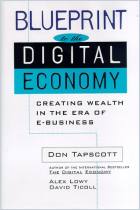No longer just bean counters, chief financial officers are taking on more wide-ranging roles, Deloitte partner Michael Haupt writes in this practical guide to CFO responsibilities. In addition to preparing financial statements, top finance executives are now leading corporate digital transformations and overseeing sustainability initiatives. Haupt acknowledges that CFOs’ financial backgrounds don’t necessarily prepare them for these new challenges, so he offers advice based on his own work with high-level finance professionals. New occupants of the CFO’s office will find this a useful reference.
The roles and responsibilities of chief financial officers have expanded.
Traditionally, CFOs were in charge of the finance function at their corporations. However, many companies have broadened that job description in recent years. Indeed, many CFOs’ duties have moved well beyond preparing financial statements. They’re tackling much larger challenges, most notably in leading digital transformations. Chief executives increasingly lean on their CFOs to take on wide-ranging tasks. CFOs have become “change agents” in many organizations, and firms are making these new demands while also holding CFOs to the highest standards of any executive in the organizational chart.
In this new job description, CFOs are expected to oversee their companies’ transformations. It’s a high-stakes assignment. Such corporate casualties as Blockbuster, Kodak, Polaroid and Borders illustrate the hazards of not keeping pace with technological change: Companies that don’t adapt in a way that prepares them to respond to constant change cease to exist. As one CFO of a Fortune 100 company notes, “We need to prepare ourselves to meet the demands for a business we haven...
Michael Haupt is a partner at Deloitte Consulting in London. He’s a leader of Deloitte’s Finance, Performance Management and Technology practice in Europe and works closely with senior leaders of global companies.





















Comment on this summary or 开始讨论